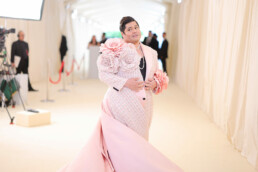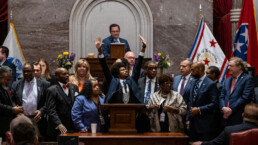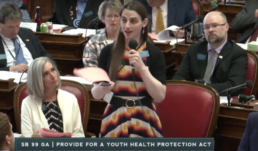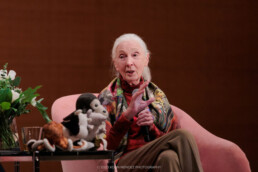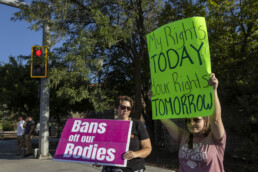"Not ugly enough to be a feminist"
 May 2, 2023 Let’s dish, Meteor readers, Happy Asian American Pacific Islander Heritage Month! And welcome to the day after the first Monday in May. We’re dying to know: Who wore your favorite Met Gala look? Was it Harvey Guillén with his enormous flowers? Keke Palmer’s classic Hollywood glam? Janelle Monáe with yet another 10/10 moment? And I’m surprised this didn’t get more coverage, but last-minute guest Tucker Carlson kind of served. Today’s newsletter asks the question that should’ve been asked months before the event started: Why Karl Lagerfeld, in 2023? Plus, it’s time for a writer’s strike! Get your reruns ready. Fashionably yours, Bailey Wayne Hundl  WHAT'S GOING ON50 Shades of shade (and pink): Cats. Pearls. Bikes. My husband, Bad Bunny-Hundl, in a backless suit.  Last night’s Met Gala theme was inspired by Karl Lagerfeld, the infamous creative director for Chanel from 1983 until his death in 2019, along with Fendi and his own label, among others. Lagerfeld was, without a doubt, one of the most influential fashion designers of our time. He defined the style of the iconic brand and kept it relevant for decades. But the deeply offensive comments he made throughout his career are well-documented: from proudly proclaiming that “nobody wants to see round women on the runway” to claiming being fat is “much more dangerous” than anorexia; from his unabashed use of blackface in 2013 to his vocal opposition to Muslim refugees; and from saying Coco Chanel “wasn’t ugly enough to be a feminist” to telling models to “join a nunnery” if they didn’t want to be sexually assaulted. As model Sara Ziff—now a labor organizer for those in the industry—pointed out, we have a long way to go when we honor someone who cares “more about models’ aesthetic value than their rights as workers.” So Lagerfeld was an odd choice to honor in 2023. But the one thing that made it better were the people walking the runway who showed off the kind of progress he didn’t embrace in his lifetime: Lizzo showed up and ATE (literally). Indigenous model Quannah Chasinghorse wore pink, Lagerfeld’s least favorite color. In fact, other than the dominating black-and-white motif, pink was one of the most heavily featured colors of the night. Would he have loved it? Hated it? Don’t care. It made watching worthwhile. So Rest In Pink, Karl. If only fashion’s racism and fatphobia could have died with you.  MY OTHER HUSBAND, HARVEY GUILLÉN, AT THE MET GALA ON MAY 1, 2023. (PHOTO BY MATT WINKELMEYER/MG23/GETTY IMAGES FOR THE MET MUSEUM/VOGUE) “It’s fucking easy”: The Writers Guild of America, which represents over 11,000 active television and film writers, voted unanimously to go on strike last night after six weeks of failed negotiations with various media companies. The WGA seeks pay increases for its members, an incredibly fair ask given the steadily falling pay rates of the industry. (Median writer-producer pay has not gone up over the last decade; in fact, it’s declined 23% when adjusted for inflation.) As Amanda Seyfried put it on the red carpet last night, “I don’t get it…Everyone should be compensated for their work. It’s fucking easy.” If the Discovery CEO David Zaslav can get paid over $246 million in 2021, studios can pay writers a fair wage. So let’s not pretend that the money’s just not there; not paying writers fairly is a choice. AND:
 LIKE, COME ON. LOOK AT THEM! (PHOTO BY TAYLOR HILL/GETTY IMAGES)  FOLLOW THE METEOR Thank you for reading The Meteor! Got this from a friend?
|
![]()
The growing viral resistance to state extremism
 April 27, 2023 Dearest Meteor readers, It’s still Lesbian Awareness Week! How have you been celebrating? 🧐 No matter how you celebrated, I think the White House outdid you; press secretary Karine Jean-Pierre (the first openly LGBTQ person to serve in the position) invited the cast of “The L Word” over. During the press conference, Jean-Pierre said, “As a young queer woman of color, I felt alone and sometimes invisible. For so many people in our community, ‘The L Word’s’ impact cannot be understated.” PREACH! 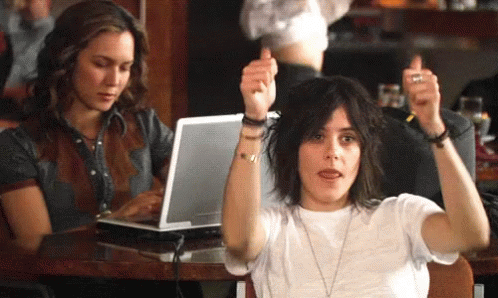 Hopefully you’ve noticed the latest surge in politicians sticking their necks out for causes in which they believe—like Montana state Rep. Zooey Zephyr, who continues to be punished for sticking up for trans rights. (More on that later.) Megan Carpentier sat down with A’shanti Gholar, the president of Emerge, to discuss this recent spark of authentic passion in state legislatures and how we can keep it going. Keeping the fire burning, Bailey Wayne Hundl  WHAT'S GOING ON11,000 people without a voice: First there was Tennessee, where two Black state legislators were expelled for leading gun-reform protests. Now there’s Montana, where the Republican-led House has voted to completely ban state Rep. Zooey Zephyr, the state’s first openly trans elected official, from participating in debates for the rest of this year’s legislative session (which ends on May 6). This move follows days of House Speaker Matt Regier blocking Zephyr’s requests to speak after she (accurately) told Republicans who were trying to interrupt her floor speech about a trans healthcare ban that they had “blood on their hands.” Zephyr will still be allowed to cast her vote—but can only do so remotely, leaving the 11,000 constituents she represents without a voice in House debates. Not to be deterred, Zephyr has set up shop on the hallway bench right outside the chamber. According to Zephyr, her colleagues tried to have her removed. But since she’s only been banned from the chamber itself, she refused. As a trans person, it breaks my heart that, after finally building up enough public support to elect one of our own, we have to watch her be removed for defending our community. Montana House majority leader Sue Vinton chastised Zephyr Wednesday for not following “the rules of decorum.” But as Zephyr said in response, “If you use decorum to silence people who hold you accountable, all you are doing is using decorum as a tool of oppression.” AND:
 LET'S GET LOUD“This is how you save democracy”A'shanti Gholar on the new viral state legislators BY MEGAN CARPENTIER DEMOCRATIC STATE REP. JUSTIN PEARSON OF MEMPHIS ACKNOWLEDGES SUPPORTERS AFTER BEING EXPELLED FROM THE STATE LEGISLATURE ON APRIL 6, 2023 IN NASHVILLE, TENNESSEE. (PHOTO BY SETH HERALD/GETTY IMAGES) Montana state Rep. Zooey Zephyr. Michigan state Sen. Mallory McMorrow. The Tennessee Three (Reps. Justin Pearson, Justin Jones, and Gloria Johnson). Nebraska state Sens. Machaela Cavanaugh and Megan Hunt. You may have seen these state legislators on social media and TV, vocally pushing back against extremist policies on the floors of their states’ legislative chambers—and often getting punished as a result. Why are state legislators’ actions becoming so prominent? In part because of a new wave of politicians—and the people who’ve supported them. As president of Emerge, A’shanti Gholar is one of those supporters; she’s been helping get liberal women elected at the state, local, and federal level for years. She spoke to The Meteor this week about what we’re seeing—and why it matters at a time in which Americans’ trust in government is at historic lows. Megan Carpentier: Why do you think so many of these moments in state legislatures are going viral? A’shanti Gholar: Our democracy is under attack, and people want to know that there are politicians who are fighting for them, who are pushing back, who aren't just going to say, Well, this is just the way the country's going to go and everyone has to deal, knowing that it's “the way the country’s going to go” will disproportionately impact Black and Brown people, young Americans, LGBTQ Americans. When we break it down, there are 520,000 elected offices and the majority of those races—our elected officials—are at the state and local level. And you have voters across this country who feel that their elected officials have failed them, so they're voting them out and/or watching closely what their elected officials are doing. And that's why we're seeing a lot of these viral moments. I love that we see so many Emerge alums [like Mallory McMorrow] who are leading these viral efforts by speaking up, getting on that chamber floor and just speaking truth to power knowing the looks that you're going to get, the possible retaliation, the hit pieces from potential opponents. This is how you save democracy.  A'SHANTI GHOLAR (PHOTO COURTESY OF EMERGE) Do you feel like the kind of people who are getting elected now, especially the younger people, are more willing to take risks than their predecessors? When they're giving these viral speeches, I don't think they're doing it to play it safe! They just know it's what they have to do and, if they end up losing their seats, they know that they went down fighting—protecting their constituents, representing them. And these young elected officials, especially Gen Zers, I like to say they're just built different. For them, this is 100% about service. It's not about power, it's not about ego, it's not about a title. All of these viral videos are them being on the floor doing what they were elected to do and serving their communities. What do you think people should understand as they're watching these young people taking to the chamber floor and really speaking their own truths? There's also older women doing it! It's not just the young people that they should be looking at; there's also their legislative peers who are joining in and are fighting back as well. We can look to someone like Colonel Pam Stevenson in Kentucky, who had a viral speech against the anti-trans legislation there. We should be looking at Tennessee Rep. Gloria Johnson: She is the perfect example of an accomplice. We talk about allies, but what Black and Brown people want are accomplices—people who are going to stand in the trenches and also risk getting expelled. She is the perfect example of an accomplice, which is what I would love for my white sisters to aim to be when they look at her. If we're in a meeting and someone says something wholly inappropriate about Black people, an ally after the meeting comes up and says, “A'shanti, that was just so awful what they said. Sorry you had to hear that.” An accomplice says in the middle of the meeting, “No. What you just said, John, Brad, Chad, whoever, was completely inappropriate and you need to apologize and you need to rethink that.” That's the difference between an ally and an accomplice. What is one thing you want people to understand about these viral moments? What ties it all together is authenticity; that is what we are seeing from everyone who has had a viral moment. It is just who they are. I really want it to be a message to the young women who are thinking about running for office that they can run for office as their authentic selves and win.  Megan Carpentier is currently a freelance editor. She’s also worked at Oxygen, NBC News, The Guardian, and Jezebel, among other places. Her work has been published in Dame, Rolling Stone, Glamour, The New Republic, and many more. FOLLOW THE METEOR Thank you for reading The Meteor! Got this from a friend?
|
![]()
What people really need in abortion-ban states
 April 25, 2023 Pleasure to see you, Meteor readers, Wow, what a week—and it’s only Tuesday. Tucker Carlson, Don Lemon, and NBC Universal CEO Jeff Shell all got fired. Joe Biden announced he’s running again. All in the middle of Lesbian Awareness Week, too. Pick another week to dominate the headlines, dudes! This one belongs to Hayley Kiyoko and Kate McKinnon.  As I’m sure you know, the Supreme Court last week ruled to protect access to the abortion medication mifepristone. We spoke to Robin Marty, director of operations for the West Alabama Women’s Center, for perspective on what this looks like from the South. But first, the news. Saluting all lesbians, Bailey Wayne Hundl  WHAT'S GOING ONGood riddance: FOX News has officially fired Tucker Carlson, reportedly over accusations of sexual harassment from a former employee and possibly over his prolific use of the word “cunt.” And as fun as it is to cheer for his exile from cable news (very fun! I know ‘cause I did it all day!), it’s also worth remembering the many things he wasn’t fired for: He defended Kim Jong-Un. He called wind power a scam. He claimed white supremacy was a hoax. He said Rep. Ilhan Omar (D-MN) was a sign that we should fight against immigration. He warned his viewers that BLM protestors were coming to get them. He blamed “wokeness” for the spread of COVID-19 at the height of the pandemic. He spread lies about the 2020 election, leading to a $787.5 million settlement from FOX. And the list goes on; basically every horrible thing you’ve heard your racist great-uncle ranting about at Thanksgiving originated at Carlson’s desk. And the worst part of it all: People listened. Let! Her! Speak!: Ever since Montana state. Rep. Zooey Zephyr told her Republican colleagues they had “blood on their hands” for attempting to ban gender-affirming care for trans youth, the House chair has blocked every request she’s made to speak on the floor. In protest, Zephyr’s constituents showed up to the House Monday and brought the session to a halt, calling for the chair to recognize her until they were escorted out. Police arrested seven protestors (who were released shortly after) for criminal trespass. But Zephyr will not back down. In a rousing speech given to the press on Monday, she said, “When someone stands up and calls out their bills for the harm they cause, for the deaths they cause, they want silence. And we will not be complicit in our eradication.” AND:
 THE VIEW FROM ALABAMA"Your worst case scenario is something we would kill for"Reproduction rights advocate Robin Marty on what's really happening in states with abortion bans BY MEGAN CARPENTIER  PHOTO BY CHARITY RACHELLE In the wake of Friday’s Supreme Court decision to block a Texas’ judge ruling that would have overturned the Food and Drug Administration’s 2000 approval of the abortion drug mifepristone, many reproductive justice activists rejoiced. But Robin Marty, the director of operations for the West Alabama Women's Center and the author of Handbook for a Post-Roe America, tells The Meteor, “I did not give a crap either way.” That’s because where she lives, access to medical abortions is already illegal. Marty spoke to The Meteor after the decision about what the case meant to patients in states like hers—and what we all can do to help. Megan Carpentier: As someone working in reproductive healthcare in a state that recently made abortion illegal, why did you find the Friday’s decision anticlimactic? Robin Marty: I did not give a crap either way because it feels like this entire lawsuit exists solely for two reasons: It exists so that the anti-abortion movement feels like they're doing something. They needed another fight to keep pressure on politicians, to keep activists engaged, and to keep raising money. But it also exists because it could divide our movement. Until the point at which this decision happened, blue states were at least trying to provide some sort of assistance to states like mine. After the decision, they all got distracted and began thinking: How do we maintain our own status quo? and began spending all their money buying as much medicine as they can. They are so busy trying to make sure that abortion remains exactly as it is in blue states, and the red states are left to flounder. What do you think the end game is for anti-abortion activists? We know that the goal is to end up with a complete federal abortion ban. They believe that, somehow, they are going to be able to create a Christian theocracy. I don't see how that's ever truly going to exist—but also, I did not imagine democracy falling apart as quickly as it has over the last four years. And, being in Alabama, I can see what it will look like if we end up in a place where we no longer have a functioning federal government that ties all these states together. Honestly, Alabama opted out of the federal government years ago. They opted out of expanding Medicaid under Obamacare. They opted out of using federal COVID funding on actual healthcare; instead, they chose to build a prison for a billion dollars. And after abortion was made illegal and the federal government tried to say, “The veterans’ hospitals are federally-funded sites, so we can have this tiny little bit of abortion available there, for people who are on veterans insurance and either have had pregnancies as a result of sexual assault or are having health complications.” Our attorney general literally said, “No, you can't do that. If a doctor does that, I'm going to arrest him and throw him in jail for 99 years.” And then the federal government just kind of said, "Oh, I guess you're right." [Ed note: They did offer to defend healthcare workers who get arrested.] Alabama is not playing by the rules of the rest of the country and what worries me is that Alabama is the bellwether of what red states are going to try and get away with. What should women or organizations be doing to help in states like Alabama? I would love to see something really big and bold. I would love to see people actually pressing back against these laws. I have this fantasy and, in my fantasy, I contact 50 really well-known superstars—actors, musicians, etc.—and they all come down to Alabama with one pack of medication abortion. And patients come (because patients aren't supposed to be able to be arrested over this) and each one of these superstars—Gweneth Paltrow, everybody—says, "OK, here's your medication." They hand it out to the patients and they risk the 99 years in jail, because we can't do it. People like me, people like Dr. Leah Torres, we can't take that risk right now…but they can. They have the resources, they have the endless amounts of money to spend on lawyers. Imagine if they just came down here and did that as an active act of defiance. What is one thing blue state readers should take away? There is a possibility that mifepristone could disappear but, if that does happen, it's not that big of a deal. The sky is not falling. There are other medications that can be used. Yeah, it's not as pleasant, but they will still have access to all misoprostol, to methotrexate, to all the other things that you can use. You'll be able to still get your procedural abortions. Your worst case scenario is something that we would kill to be able to have access to here.  Megan Carpentier is currently a freelance editor. She’s also worked at Oxygen, NBC News, The Guardian, and Jezebel, among other places. Her work has been published in Dame, Rolling Stone, Glamour, The New Republic, and many more. FOLLOW THE METEOR Thank you for reading The Meteor! Got this from a friend?
|
![]()
"I could've changed their hearts"
 April 20, 2023 How’s it hanging, Meteor readers? Weed like to wish a happy 4/20 to all who celebrate. As you may know, I live in Texas where weed is not legal, so I will not be participating. Hear that, local law enforcement? None for me, thanks. Never even touched the stuff.  Of course, as Rev. Dr. Jacqui Lewis points out, a true 4/20 celebration would be liberating the over 40,000 people currently imprisoned for marijuana possession, especially when Black people are 3.64 times more likely than white people to be arrested for it. (Meanwhile, 81% of cannabis business owners in states where it is legal are white.) In today’s newsletter, we take a look at the passionate defense one state rep made for trans people—and the punishment she’s facing as a result. Definitely not blazing it, Bailey Wayne Hundl  WHAT'S GOING ON“Blood on your hands”: In 2022, Montanans elected their first openly trans state representative, Zooey Zephyr. And on Tuesday, House Republicans called for her censure, the harshest form of punishment short of expulsion and a measure typically doled out after acts like tax fraud or making an animated video of yourself killing AOC and Joe Biden. And what had Zephyr done to provoke this punishment? She passionately defended trans people. It all went down Tuesday on the Montana House floor. During a debate over a proposed bill blocking gender-affirming care for trans youth, Zephyr told her Republican colleagues: “If you vote yes on this bill, I hope the next time you bow your heads in prayer, you see the blood on your hands.” The clip went viral, but what most viewers might not know is that Zephyr was speaking literally: Less than a month ago, she later shared, each member of the Montana legislature had received a letter from a local doctor whose partner was treating a suicidal trans teenager in the ER. The child had cited the current legislative session as their top stressor, telling doctors, “My state doesn’t want me.” After Zephyr’s remarks, the Montana legislature’s Freedom Caucus called for her censure, linking her so-called “hateful rhetoric” with the Covenant Christian School shooting in Nashville (which conservatives have tried to paint as an act of “trans terrorism” despite the fact that investigators have been unable to find a motive). The caucus also deliberately misgendered her in its statement. Before she was elected to office, Zephyr had spent years fighting for human rights legislation in her city of Missoula (notoriously one of the bluest areas of Montana). But in 2021, when she saw two anti-LGBTQ bills pass the state legislature by just one vote apiece (SB 215 and SB 280), she decided to run for office. She said in an interview during her campaign, “I know damn well that I could’ve changed their hearts if I had access to these people the way the legislators do.” Even if Zephyr’s actions don’t end up changing the vote, her words have reached far outside the state capitol. Republicans described her language as “inappropriate and uncalled-for,” but to the millions of people who care about trans kids, nothing could be more called for in a moment like this. AND:
 FOLLOW THE METEOR Thank you for reading The Meteor! Got this from a friend?
|
![]()
On ringing doorbells while Black
 April 18, 2023 Good evening, Meteor readers, I’ve started watching “Beef” on Netflix and let me tell you: I get it. Like, am I planning a fiery road rage incident that sparks an over-the-top rivalry with a complete stranger? No. But the way my fellow Houston drivers behave… I’m just saying, if you see me on the news, just pretend you never read this. 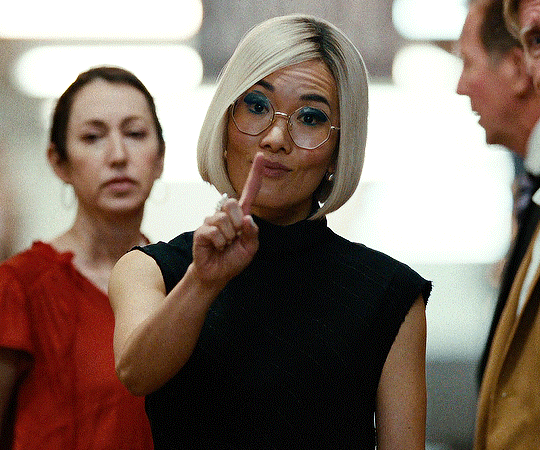 In today’s newsletter, we also look at the shooting of Missouri teenager Ralph Yarl and the way Black people are viewed as threats, even when they’re bleeding out on a doorstep. And as a reminder, The Meteor has been nominated for the 27th Annual Webby Awards People’s Voice in both the News & Politics and Public Service & Activism categories. Voting closes this Thursday—let’s make this happen! Revving my engine, Bailey Wayne Hundl   PHOTO CREDIT: FAITH SPOONMORE VIA GOFUNDME WHAT'S GOING ONKnocks at the door: Ralph Yarl is a 16-year-old Black boy. He plays bass clarinet as a section leader for his Kansas City high school band. And on April 13, after being sent to pick up his younger twin brothers, the teenager rang the doorbell at the wrong house and was shot in the head through a closed glass door by Andrew Lester, an 84-year-old white man. As you probably know by now, Yarl was supposed to pick up his brothers from 1100 NE 115th Terrace, but mistakenly went to Lester’s home at 1100 NE 115th Street—one block north. In a statement given to the police from the hospital, Yarl said he rang the doorbell; Lester opened the interior door, said, “Don’t come back around here,” and shot Yarl through the glass exterior door. Then, while Yarl was still on the ground, Lester came outside and shot him a second time in the arm. Thankfully, Yarl survived the attack, but he was left with a cracked skull, a traumatic brain injury, and an injured arm. In Lester’s police statement, he claimed to believe he was protecting himself from a physical confrontation with an intruder. And his neighbors may have seen Yarl the same way; according to a GoFundMe page made by Yarl’s aunt, the bleeding teenager had to go to three separate homes after being shot before someone finally agreed to help him. Lester currently faces two felony charges, as he should. And while Missouri does not have an explicit “stand your ground” law (like Florida did in the trial of George Zimmerman), it does have the “castle doctrine,” which allows for violent action to defend yourself in your home. As Kansas City attorney Kevin Jamison told The Washington Post, ringing a doorbell is not a legally justifiable threat of violence. It’s easy for non-Black people to hear about violence like this and view it as something both horrible and distant. But, as The Meteor’s Treasure Brooks points out, white liberals are not exempt from a culture that views Black people as “inherently intrusive.” The same anti-Black culture that drove Lester to fire his gun is “the same culture that throws out job applications with ‘black sounding names,’ the same culture that perceives Black students more deserving of expulsion, and the same culture that blocks Black owned businesses from receiving investment.” AND:
  FOLLOW THE METEOR Thank you for reading The Meteor! Got this from a friend?
|
![]()
The health crisis facing Black mothers
|
Plus: A human rights ruling with a big old asterisk
 April 13, 2023 Hello, my lovely Meteor readers, Have you done your taxes yet? No shame if you haven’t. Personally, I just finished mine last night…only to have it rejected. (Apparently, Form Blah-Blah needed a cross-reference to Form Such-and-Such or whatever.) I know I’m nowhere near the first or the last to say it, but why is this whole process so damn hard? Just tell me what I owe you and let me be! We’ve got a jam-packed newsletter for you all today: a glass-half-empty mifepristone ruling; a multimillion-dollar debt-burning ceremony; Black Maternal Health week; and the hit TV show “A League of Their Own” is BACK! (Sort of.) 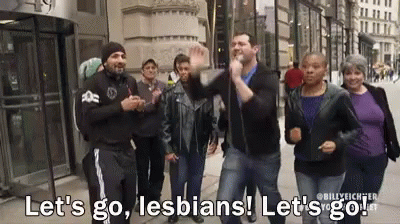 And don’t forget to vote for us in the 27th Annual People’s Voice Webby Awards. We’ve been nominated for News & Politics and Public Service & Activism in their social media category. Both of our entries are about abortion, and if you agree that telling these stories is crucial right now, we’d be grateful for your vote! Double-checking my Form Such-and-Such, Bailey Wayne Hundl  WHAT'S GOING ONThe fight for mifepristone continues: After Trump-appointed Judge Matthew Kacsmaryk ruled late last Friday that the FDA should revoke its approval of the abortion pill mifepristone, despite over twenty years of its safe and effective use, the (also mostly Trump-appointed) 5th Circuit Court of Appeals decided late last night to partially overrule this decision. This ruling avoids the pill’s outright suspension for now; the three-judge panel determined that, since the FDA first approved mifepristone in the year 2000, too much time had passed for the approval to be revoked and that doing so would have “significant public consequences.” But the ruling also comes with some heavy asterisks. The court upheld Kacsmaryk’s ruling that some of the FDA’s more recent changes to make the pill more accessible should be suspended, including:
At times, the court’s 42-page decision even parrotted the anti-abortion rhetoric used in Kacsmaryk’s case, intentionally using the scary-but-bogus term “chemical abortion” and at one point referring to a fetus or embryo as “an unborn child.” The judges also claimed that “as a result of the FDA’s failure to regulate this potent drug,” the harm done by the pill is “sufficiently concrete.” Sufficiently concrete? Not exactly! Thanks to a wonderful report from The Washington Post detailing all the science Kacsmaryk ignored (and all the flawed pseudoscience he relied on instead), we know that of the 5.6 million people who used mifepristone between the year 2000 and last June, only 28 mifepristone-related deaths were reported, making the drug safer than penicillin. And even in those 28 cases (some of which involved overdoses or pre-existing conditions), the evidence is too incomplete and inconclusive to demonstrate any cause of death to mifepristone. The Justice Department announced Thursday that it would ask the Supreme Court to block the 5th Circuit’s ruling and protect access to mifepristone. Given SCOTUS’s current makeup, it’s hard to be optimistic. But some argue that the FDA could just refuse to comply, and we may find out soon how real that possibility is. AND:
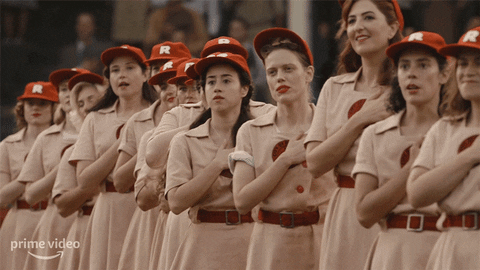  FOLLOW THE METEOR Thank you for reading The Meteor! Got this from a friend?
|
![]()
What's next for the abortion pill
 April 11, 2023 Dear Meteor readers, As you’ve probably heard by now, a Texas judge ruled late on Friday that the FDA approval of the abortion pill mifepristone should be revoked, potentially threatening access everywhere to the medication (which has been used, safely, for 23 years). As a born-and-raised Houstonian, I’m used to having to deal with Texas’ bullshit. But it’s absolutely devastating to see one extremist’s decision ripple nationwide. In today’s newsletter, we parse the aftermath of Kacsmaryk’s unprecedented ruling. On the happy side, though: Hannah Gadsby’s got a new special on its way! Plus, female superheroes! (Can they go to Texas?) Holding you all as tight as I can, Bailey Wayne Hundl  WHAT'S GOING ON THREE MIFEPRISTONE PILLS IN DECEMBER 2000, THE YEAR THE PILL WAS APPROVED SAFE FOR USE BY THE FDA (PHOTO BY BILL GRENBLATT/LIAISON VIA GETTY IMAGES) What the abortion pill mess means: In a highly anticipated court case, Texas Judge Matthew Kacsmaryk ruled Friday that the FDA should revoke their approval of mifepristone, a pill used in about half of all abortions nationwide. Despite being one of the safest and most studied medications available, Kacsmaryk, a Trump appointee with long-held anti-abortion views and a penchant for dressing his toddler in anti-abortion baby duds, wrote in his 67-page opinion that the FDA had “acquiesced on its legitimate safety concerns” in the face of “significant political pressure” to “increased ‘access’ to chemical abortion.” First off: “chemical abortion” is a label meant to portray these safe medications as unhealthy, which they aren’t. Second: This is going to backfire on extremists, believes Cecile Richards, former CEO of Planned Parenthood. “Republican leadership is going to be absolutely on the defense now for the next 18 months,” she told The 19th News Friday; recent polls show widespread public support for legal abortion. Of the 38 current Republican senators who voted to confirm Kacsmaryk, only one, Sen. Cindy Hyde-Smith of Mississippi, has publicly celebrated the decision. Response to Kacsmaryk has been swift: In a separate ruling issued late Friday night, a Washington judge ordered the government to keep mifepristone available in 17 states and D.C., noting that the drug is safe and effective. Meanwhile, the Department of Justice asked the 5th Circuit Court of Appeals on Monday to block the Texas decision. And in a genius move, Massachusetts Gov. Maura Healy revealed Monday that she had already stockpiled almost two years’ worth of mifepristone in advance of Kacsmaryk’s decision. (Washington Gov. Jay Inslee’s supply sits at around three years.) Thankfully, mifepristone is not the only abortion pill available; the World Health Organization has approved of misoprostol-only abortions for years. However, taking misoprostol on its own leads to more side effects: cramps, nausea/vomiting, fevers, and even incomplete abortions—all side effects mifepristone helps alleviate. (It also takes longer to work, so patients traveling out of state to take them may have to be gone longer.) In other words: If this ruling holds, abortions will get even less safe than they were…all thanks to a court case ostensibly concerned with mifepristone’s safety. As Amanda Marcotte wrote for Salon, this ruling “serves no other purpose but to punish patients who seek abortion by making the process more miserable than it needs to be.” The inhumanity isn’t a side effect; it’s the goal. So what’s next? In all likelihood, this case will go to the 5th Circuit Court of Appeals and, if it’s upheld there, make its way to the Supreme Court. And in the meantime, organizers will keep doing what they’ve been doing all day every day for years, and especially since last June: They’ll help make abortion as accessible as possible. You can help by donating to abortion funds. You can stay tuned, and stay angry.  FLOWERS LAID ON THE STEPS OF THE OLD NATIONAL BANK, WHERE A SHOOTING TOOK PLACE MONDAY (PHOTO BY MICHAEL SWENSEN/LIAISON VIA GETTY IMAGES) AND:
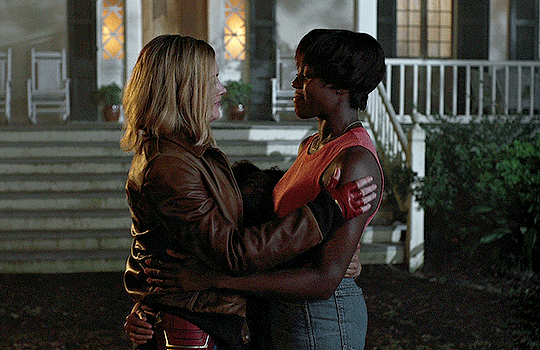  FOLLOW THE METEOR Thank you for reading The Meteor! Got this from a friend?
|
![]()
Jane Goodall in her own words
 April 6, 2023 Guess what, Meteor readers? I am absolutely THRILLED to announce that The Meteor has been nominated for a Webby! Our reporting on Amanda Zurawski, a Texas woman who went into sepsis after being denied an abortion for a life-threatening pregnancy, is up for the Public Service & Activism award in the Social Video category (alongside Barack Obama, no less). Make sure you hop on over and give us (and our producing partners, Harness, O4RJ, and Firebrand) a vote!  Today’s newsletter has it all: unethical Supreme Court Justice behavior, progressive election wins, and Washington’s plan to stockpile mifepristone in case it becomes illegal. And if you missed our talk with Dr. Jane Goodall at the Brooklyn Museum on Tuesday, don’t worry: We’ve got a recap full of murderous chimpanzees and fierce observations. Crossing my fingers and thanking the Academy, Bailey Wayne Hundl  WHAT'S GOING ONHigh court, low standards: A new report from ProPublica has revealed that for decades, Supreme Court Justice Clarence Thomas has accepted (but failed to disclose) numerous gifts from a major Republican donor. The anti-abortion/anti-gay/anti-good judge has made it a habit of taking unreported luxurious vacations, private flights, yacht trips, stays at resorts, you name it—all financed by Harlan Crow, a man who has donated over $10 million to conservative political organizations. Compared to other branches of government, Supreme Court justices have fewer restrictions on the sorts of gifts they have to disclose. (Members of Congress, for example, cannot accept anything valued over $50 without prior approval.) But they are required to disclose gifts over $415; to name one example, Thomas’ nine-day trek across Indonesia via private jet & yacht would have cost over $500k had he paid for it himself. It’s hard to say any of this will matter in the long run; after all, this isn’t the first time that Thomas has ignored judicial ethical expectations and come out consequence-free. But the situation does highlight a need for more enforceable restrictions when it comes to Supreme Court justices’ behavior. As Senate Judiciary Committee Chairman Dick Durbin told CNBC in response to ProPublica’s report, “The highest court in the land shouldn’t have the lowest ethical standards.” AND:
  CELEBRATING 89 YEARSA Fireside Chat with Dr. Jane GoodallShe spoke with The Meteor about her early love of animals and how, despite the reality of climate change, she remains hopeful.  DR. JANE GOODALL WITH HER BELOVED STUFFED ANIMALS (PHOTO BY KOLIN MENDEZ PHOTOGRAPHY) Tuesday night, we had the absolute pleasure of hosting a talk with renowned ethologist and activist Dr. Jane Goodall at the Brooklyn Museum to celebrate her 89th birthday. With a glass of whiskey in one hand and a retinue of stuffed animals on the table beside her, Dr. Goodall sat down with Meteor founding member, writer and illustrator Mona Chalabi to reflect on her life, her legacy, and her longing for a healthier planet. The evening started with poetry from Jade Lozada, an address from Commons founder and CEO Sanchali Pal, and environmental activist Ayisha Siddiqa in conversation with The Meteor’s Treasure Brooks. Here are some of our favorite stories from the night. Spoiler alert: Her favorite animal is apparently not a chimpanzee.  AYISHA SIDDIQA AND TREASURE BROOKS IN CONVERSATION OPENING THE EVENT (PHOTO BY KOLIN MENDEZ PHOTOGRAPHY)
When Dr. Goodall was only a year and a half old, her mother found her in bed with a handful of live earthworms. Most mothers, she recounted, would probably have told her, “Oh, throw those dirty things out.” Instead, her mother noticed how Jane was studying the worms, as if she were wondering how they moved around without legs. Gently, she told her daughter, “I think we’d better take them in the garden, because they might die in your bed.” That (and a childhood crush on Tarzan) sparked her dream of going to Africa to study animals. “No thought of being a scientist—that wasn’t for women back then,” Goodall recalled. “And everybody laughed at me: ‘You’ll get to Africa, it’s far away, we don’t know much about it, it’s full of dangerous wild animals, and you’re just a girl.’” Her mother encouraged her, though: “Jane, if you really want to do something like this, then you have to work really hard, take advantage of every opportunity. And if you don’t give up, hopefully you’ll find a way.” Which she did.
Dr. Goodall’s first trip to study chimpanzees in Tanzania started quite rough. For the first few months, her main exposure to them was “seeing their backsides vanishing into the forest,” she says. . But finally, a chimp named David Greybeard let his guard down around her, leading to a revolutionary breakthrough: Humans were not the only animal who used tools. She described watching David as he stripped a twig of its branches so that it would fit into termite holes, using it to fish them out for a quick snack. “At that time, science had decided that humans, and only humans, could make tools. We were defined as ‘Man the Tool User,’” Goodall said. “So I owe David a lot.”
Dr. Goodall had headed to Tanzania with no college degree; she’d trained as a secretary. But after her discovery, her boss, Dr. Louis Leakey sent her directly to Cambridge. “He said there was no time for an undergraduate degree,” she recalled. While there, she was admonished by a professor for giving the chimpanzees names—and for talking about “their personality, their minds, or their emotions.” The conventional wisdom at the time, the professor reminded her, was that only humans had those. But Goodall knew this wasn’t the case. The more she studied the chimpanzees, the more she observed their personalities at work: the relationships between mothers and their children; lifetime familial bonds; adoption; grief; war. She recalled how “the male will stand upright, have a furious scowl on his face and shake his fist, and it’s all about how. It reminds me so much of two male human politicians.” (At this point, the Brooklyn Museum audience laughed, and Goodall coyly continued: “And I didn’t say a name, did I?”)
If humans aren’t the only animals with personalities, then it follows that humans aren’t the only animals who can be “bad.” Dr. Goodall told the story of a chimpanzee named Passion, who killed and ate several other mothers’ babies for no discernible reason. Not only that, but she treated her own children terribly, leading Goodall to conclude, “There’s nice chimpanzees and unpleasant ones—just like people.” And that’s why her own favorite animal isn’t a chimp—but a dog.
Dr. Goodall explained that not only is animal farming environmentally destructive, but it’s a cruel thing to do when “every one of those animals [are] individuals. They can feel fear and pain, and they have personalities and characters—although they can’t express them.” She talked about her organization Roots & Shoots, which has helped hundreds of thousands of young people across 68 countries develop personal projects that make a positive impact on the environment. Though the damage done to our planet can feel overwhelming at times, Goodall believes collaborative endeavors are the way forward. “If we put all these actions together, small actions can cumulatively move us towards a world that’s better.” Or, if you’re a billionaire: “Write out a big check to the Jane Goodall Institute.”  MONA CHALABI TOASTS TO DR. GOODALL'S 89TH BIRTHDAY(PHOTO BY KOLIN MENDEZ PHOTOGRAPHY) FOLLOW THE METEOR Thank you for reading The Meteor! Got this from a friend?
|
![]()
"This is for the girls that look like me"
 April 4, 2023 Hello again, Meteor readers, Happy Trump Arrest Day to all who celebrate! In case you hadn’t yet heard, the former Home Alone 2 actor surrendered to authorities today, facing 34 felony counts of falsifying business records. Unfortunately, it’s unlikely we’ll ever have the sweet satisfaction of getting to see his mug shot—even if he does end up taking one. We’ll just have to satisfy ourselves with these AI-generated substitutions. (Look at him go!) We’ve got a bit of a short one today because we’re in conversation with Dr. Jane Goodall tonight at the Brooklyn museum. If you can’t join us in person, you can still watch the livestream here.  Today’s newsletter still has it all, though: powerful trans allyship, racial double standards, and an announcement from the Vatican that came 500 years too late. In celebration, Bailey Wayne Hundl  WHAT'S GOING ON “For the girls that look like me”: On Sunday, college basketball star Angel Reese was named Most Outstanding Player of 2023 after leading the LSU Tigers to victory in the NCAA Women’s Championship. She also set the measure for most double-doubles in a single season with a total of 34. But all anyone can seem to talk about is…the fact that she did some light trash-talking? After her win, Reese did the “John Cena,” waving her hand in front of her face at rival player Caitlin Clark. Pundits derided the move as “classless”—despite the fact that Clark herself did the same move earlier in the tournament. In the post-game press conference, Reese responded to the double standards: “I don't fit in a box that y'all want me to be in. I'm too hood. I'm too ghetto. But when other people do it, y'all say nothing. So this was for the girls that look like me, that's going to speak up on what they believe in. It's unapologetically you." As our own Mik said on Instagram yesterday, “When do we see this debutante-level decorum ever expected from male players?” A word of advice: Maybe if you are going to call a Black woman “classless,” make sure you’re holding everyone else to the same standard. AND:
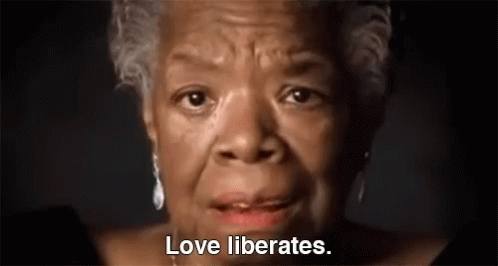  FOLLOW THE METEOR Thank you for reading The Meteor! Got this from a friend?
|
![]()
What the hell is "abortion trafficking"?
 March 30, 2023 Greetings and salutations, Meteor readers, We’re reaching the end of Women’s History Month, which means today’s issue contains our last slice of history. But don’t worry, it’s a good one: This newsletter’s beloved Shannon Melero has briefly poked her head out from maternity leave to tell us a fascinating story about freedom fighter Lolita Lebrón. We also take a look at the frightening new anti-abortion bill creeping its way toward the Idaho Senate. (What the hell does “abortion trafficking” even mean??) But first: the news. Getting ready for April, Bailey Wayne Hundl  WHAT'S GOING ONUnder His Eye-daho: The latest horrifying twist in the attack on abortion patients: Idaho, which has already completely banned abortions with very narrow exceptions, is set to pass a bill effectively prohibiting minors from traveling literally anywhere to get one. House Bill 242, which passed in the House and will likely pass quickly in Idaho’s Republican-led Senate, seeks to establish the new, so-called crime of “abortion trafficking.” Under this bill, any adult who helps any minor receive an abortion without a parent’s permission—whether in or out-of-state—could be charged with a felony punishable by two to five years in prison. (That includes grandparents, aunts, friends, or abortion-fund volunteers.) But there’s more: H.B. 242 also forbids adults from helping minors obtain “an abortion-inducing drug”—such as mifepristone, which is already under attack. In other words, under this bill, any adult who even drives a teenager to a store or the Post Office to pick up the mifepristone they ordered could be charged with (say it with me) “abortion trafficking.” The bill also includes a civil clause allowing any family member of someone who obtained an abortion—or the person who impregnated them—to sue any medical professional involved up to four years later. The only exception made is if the pregnancy was the result of rape of incest. So to recap: If you’re a minor and you get pregnant in Idaho after this bill passes, you can’t get an abortion. You can’t get help to travel to another state for an abortion. You can’t get a ride to Mail Boxes Etc. if you order an abortion pill in the mail. Basically, no trusted adult can help you get the care you need without risking their freedom. If you’re in Idaho and you need assistance with an abortion, you can find your local Abortion Access Fund here. And if you don’t live in Idaho, please consider donating. AND:
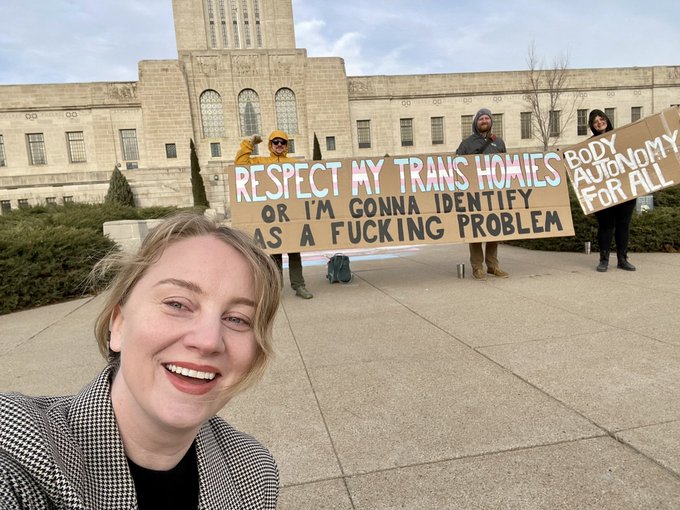 STATE SEN. MEGAN HUNT POSING WITH PROTESTORS (PHOTO BY MEGAN HUNT)
 A 🍕 OF HISTORY"My Life I Give for the Freedom of My Country"It's Women's History Month. And every week, a Meteor collective member recounts a piece of women's history that resonates with them. Today, Shannon Melero unpacks the controversial legacy of freedom fighter Lolita Lebrón.  LOLITA LEBRÓN AND TWO OTHER PUERTO RICAN NATIONALISTS AFTER HAVING BEEN ARRESTED BY CAPITOL POLICE ON MARCH 1, 1954. (PHOTO BY LIBRARY OF CONGRESS/CORBIS/VCG VIA GETTY IMAGES) The story of Lolita Lebrón was first described to me as a cautionary tale of a woman who inexplicably chose to become a terrorist. But as NPR’s Michelle Norris said about Lebrón in 2010, “One person’s terrorist is another person’s freedom fighter.” Lebrón was born in Lares, Puerto Rico—a place infamous because of an 1868 uprising against Spanish colonizers known as El Grito de Lares (“the scream of Lares”). The Spaniards violently quashed the uprising in a day and Lares is now considered the birthplace of Puerto Rican nationalism; this is the soil from which Lolita Lebrón sprung. Her teen years were also shaped by the Ponce massacre of 1937. By that time, Puerto Rico was no longer a Spanish colony but an American one, and peaceful demonstrators gathered that March 21—Palm Sunday—to protest the occupation. The U.S.-appointed governor of Puerto Rico, Blanton Winship, ordered local police to open fire on the group. They murdered 22 unarmed protestors and wounded more than 100 others. Like thousands of other islanders, Lebrón moved to the mainland in 1941, enticed by the promise of a better life. At the time, the U.S was looking to solve post-WWII labor shortages by importing cheap labor from a territory, while the Puerto Rican government acquiesced hoping that a population shift would alleviate the island’s crippling poverty. Several years after arriving in New York, she joined and then quickly rose in the ranks of the Puerto Rican Nationalist Party (no easy task for a woman at the time). At the same time, back at home, the United States was eliminating many of the islanders’ constitutional rights, including their ability to display the Puerto Rican flag, and Puerto Rico was officially declared a commonwealth of the U.S. It was because of this trampling of Puerto Rican sovereignty that wrongly imprisoned Nationalist Party leader Pedro Albizu Campos sent Lebrón a letter ordering an action against the U.S. government in Washington D.C. with the goal of drawing attention to the plight of Puerto Ricans. And she rose to the challenge. On March 1, 1954, Lebrón led three party members from New York City in an attack on the U.S. House of Representatives. The group entered the House armed, unfurled the Puerto Rican flag, and, as Lebrón shouted, “Viva Puerto Rico libre!”, fired into the chamber. Their stated goal, however, was not to commit murder—which is why Lebrón shot her first round into the ceiling. Five members of Congress were injured while trying to escape and Lebrón and her comrades were arrested, tried, and convicted. She was sentenced to 56 years in prison and served 25 before being pardoned by President Jimmy Carter in 1979. She stayed active in the fight for independence even after her release, and was arrested again at the age of 81 while protesting the American Navy’s presence in Vieques. Lebrón died in August 2010, an icon to millions. She never renounced her actions at the Capitol. To this day there are still debates about whether Lebrón was a lowlife criminal or a revolutionary pushed into action by the very real, very violent oppression that shaped her everyday life. Her legacy isn’t something that can be boiled down to the binary of “good woman” or “bad woman.” My hope is that when people think about this complex woman and her contributions to history they keep in mind the note she carried with her to the Capitol, where she believed she would be killed: “My life I give for the freedom of my country.”  Shannon Melero is a Bronx-born writer on a mission to establish borough supremacy. She covers pop culture, religion, and sports as one of feminism’s final frontiers. FOLLOW THE METEOR Thank you for reading The Meteor! Got this from a friend?
|
![]()
